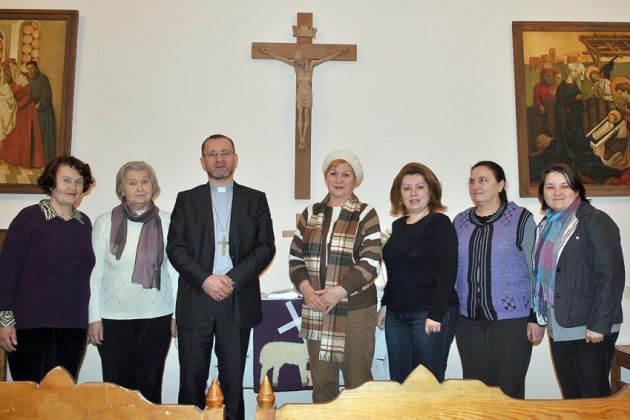Annexation of Crimea creates uncertainty for its Ukrainian Lutherans

The annexation of Crimea by Russia in March has created uncertainty for religious minority groups there and for those that with ties to churches in Ukraine including a small group of Lutherans.
The episcopal supervision and pastoral care of the seven Lutheran congregations on the Crimea peninsula will remain with the Ukrainian Church, the Geneva-based Lutheran World Federation has said in a report.
The Ukrainian Lutheran church is officially registered as the German Evangelical Lutheran Church of the Ukraine (GELCU) and is dwarfed in Ukraine by the Orthodox churches and the Ukrainian Greek Catholic Church.
With just a few thousand members the ULC was established in 1996 by several Lutheran congregations in Ukraine after the fall of the Soviet Union and restrictions on religious expression were loosened.
The decision to stay with the church in Ukraine was stated in a letter addressed to Lutheran congregations in Crimea. The letter followed g a meeting of the Bishop's Council of the Evangelical Lutheran Church in Russia and Other States (ELCROS) from May 7 to 9 in Tbilissi, Georgia.
"In spite of changes in the political life of our countries, we remain in spiritual and church communion," the letter states, according to a statement by Lutheran World Information.
ELCROS is a federation of Lutheran churches in the former Soviet Union, among them GELCU and the Evangelical Lutheran Church in the European part of Russia (ELKER).
After a disputed referendum on March 16 delivered Crimea to the Russian Federation, the Lutheran congregations on Crimea found themselves under Russia political jurisdiction.
This raised the question of whether they would remain under the pastoral care of GELCU which has congregations in all the Ukraine or join ELKER, which supervises Lutherans in Russia.
GELCU bishop Serge Maschewski said the congregations expressed the wish to remain under the supervision of the Ukrainian church.
The congregations are however free to change their affiliation to another church, says the letter which has been jointly signed by ELKER bishop Dietrich Brauer and GELCU bishop Serge Maschewski.
"We respect the decision of each congregation concerning their future affiliation with another church. As Crimean congregations under the new political administration are required to register anew, they would choose their church affiliation in the process as well," Maschewski said.
Both churches have offered assistance in the legal proceedings.
"I am confident that with the help of our lawyers we will be able to solve all legal issues pertaining to the new situation," Maschewski said in an interview with Lutheran World Information.
He said that the local pastor of those seven congregations, is back on Crimea after he left the country during the civil unrest.
"Pastor Göring and deaconess Donetzkaja are at work as before, serving the congregations on Crimea," he said.
"Church events are taking place especially in diakonia and working with young people" said Maschewski.
"The situation is quiet enough. There is worship, bible studies, house calls etc. The people of Crimea are confronted with many new and different bureaucratic tasks, concerning the reception (or lack of reception) of identity cards and other legal documents," he noted.
Dr Elena Bondarenko, dean of ELKER, said, "The most important thing for us now are these congregations. We stay in dialogue with the Ukrainian church GELCU.
"We pray for peace and hope that our communion with the Lutheran Church in the Ukraine can contribute to this peace, even though the situation in the Ukraine is extremely complicated," Bondarenko said.